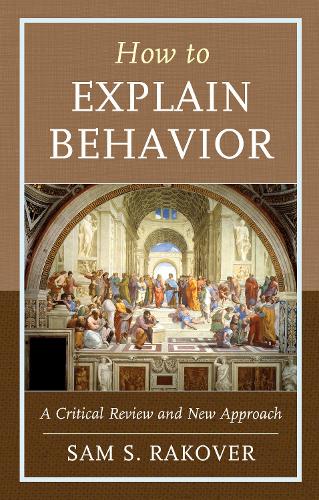
How to Explain Behavior: A Critical Review and New Approach
(Hardback)
Available Formats
Publishing Details
How to Explain Behavior: A Critical Review and New Approach
By (Author) Sam S. Rakover
Bloomsbury Publishing PLC
Lexington Books
20th December 2017
United States
Classifications
Professional and Scholarly
Non Fiction
Philosophy of mind
Psychology
Cognitive studies
150.287
Physical Properties
Hardback
282
Width 159mm, Height 237mm, Spine 22mm
553g
Description
In How to Explain Behavior: A Critical Review and New Approach, Sam S. Rakover proposes a critical review of explanation models (procedures); presents explanation as an essential part of research methodology; depicts understanding as based on explanation models and other procedures; provides a list of basic ideas common to most explanation models; supplies an approach that unifies mechanistic explanations as used by the sciences with mentalistic explanations that are based on one's inner world; and provides a general procedure for explaining individual behavior.
Reviews
How to Explain Behavior: A Critical Review and New Approach is at once a general introduction to psychological explanation and an original mature theory on the nature of such explanation. It is to be hoped that this work will be widely read not only by psychologists, philosophers, and historians of science, but by all those motivated by the struggles of a gifted thinker who is forging his way toward a foundation for his discipline. -- Daniel Algom, Tel-Aviv University
Sam S. Rakovers provocative book consists of a comprehensive, in-depth analysis of the conceptual problems involved in the explanation of organismic behavior which concludes with a bold, creative suggestion of an original model that skillfully combines complementary mechanistic (causal) and mentalistic (teleological) explanations which together may account for both the external (explicit responses) and internal (implicit will and belief) behavioral processes. -- Israel Nachson, Bar Ilan University, professor emeritus
Knowing that Sam S. Rakover is a psychologist, his dual methodology and multi-explanation framework that appear in this book can be considered as an essential epistemological step toward an overall explanation of the realities (epistemological ontologies) of the mind and brain (i.e., my epistemologically different worlds perspective). -- Gabriel Vacariu, Bucharest University, author of Illusions of Human Thinking
Author Bio
Sam S. Rakover is professor in the Department of Psychology at the University of Haifa.
